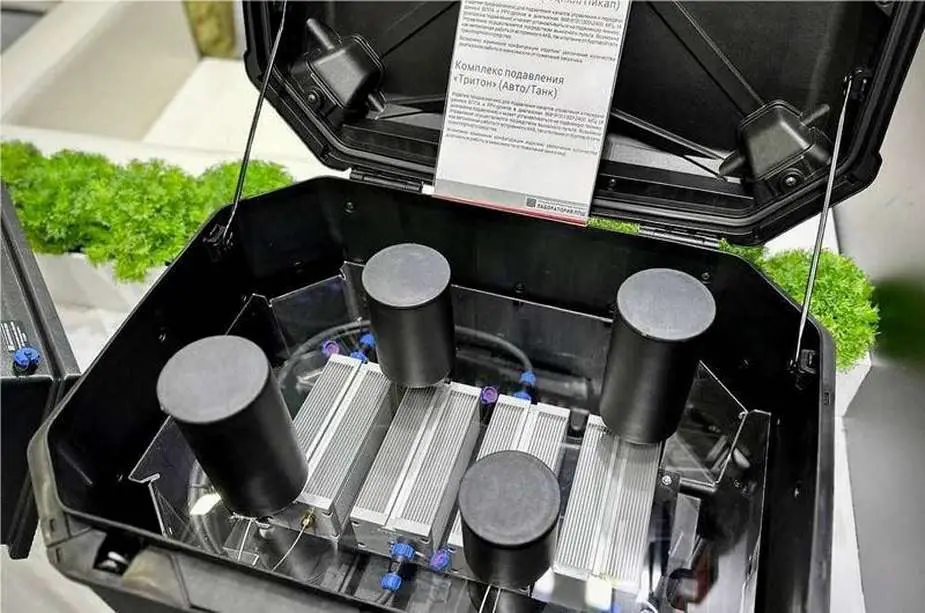Breaking news
Russia presents Triton radio-electronic system to protect armored vehicles from FPV drones.
At the Army 2023 exhibition, Russia unveiled a radio-electronic defense system, called "Triton", designed to protect armored vehicles from the threat posed by drones. This system has successfully passed preliminary tests in Ukraine.
Follow Army Recognition on Google News at this link

Triton Radio-Electronic Complex offers protection against Drones (Picture source: Russian Media )
The conflict in Ukraine has highlighted the effectiveness of combat drones, with their widespread use in the ongoing conflict. One of the current challenges of the conflict is the development of systems capable of neutralizing drones, which have become increasingly troublesome. We have seen makeshift solutions such as mesh screens mounted on vehicles or even repurposed anti-aircraft systems, which are often more cost-effective than modern anti-aircraft systems.
The "Triton" comprises a set of suppression modules and an antenna that can be easily integrated into armored vehicles. The system disrupts the control frequencies of FPV drones, operating in four primary frequency ranges: 868, 915, 1200, and 2400 MHz. To date, "Triton" has already proven its effectiveness in real combat conditions in Ukraine. Joint tests with armored vehicle manufacturers are planned in the near future.
Although the initial trials in Ukraine were successful, additional tests are scheduled from late August to early September. These tests will be conducted in collaboration with vehicle manufacturers, and recommendations for structural improvements will be issued. Now that the initial tests have demonstrated success, the company is seeking customer feedback regarding required frequencies and structural specifications.
The modules of the "Triton" system can be configured and reconfigured on armored vehicles, allowing for adaptability and the addition of new modules to counter new frequencies that adversaries might employ to control drones.
The system is powered by the vehicle's onboard power supply but can also operate on batteries if necessary. It can be remotely controlled using a dedicated control unit and can be installed not only on armored vehicles but also on pickup trucks and quad bikes, where it is enclosed in a robust plastic casing.
It remains to be seen what the Triton will truly bring to the Russian troops still engaged in the conflict in Ukraine. Field-testing such a system promises to be very interesting, and numerous lessons are likely to be learned. Additionally, the scale of production and deployment will be a critical factor given the vast number of vehicles that could benefit from such a system.


























